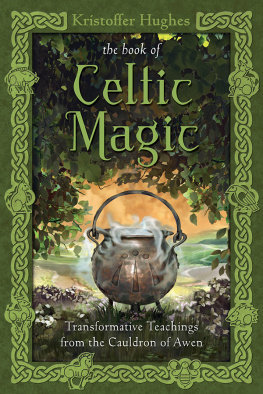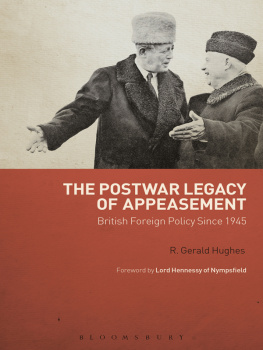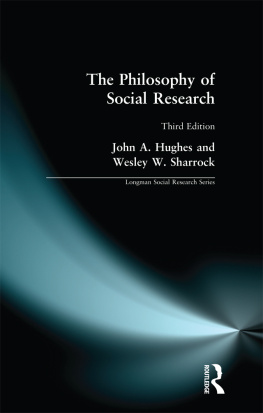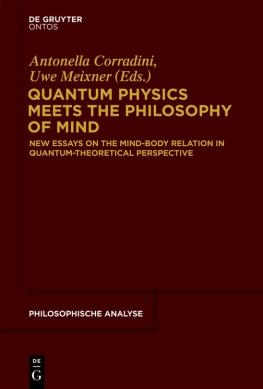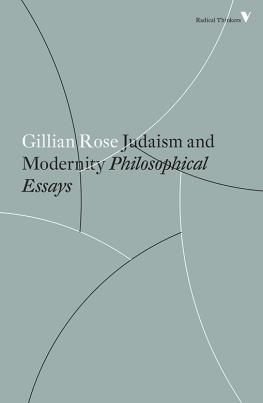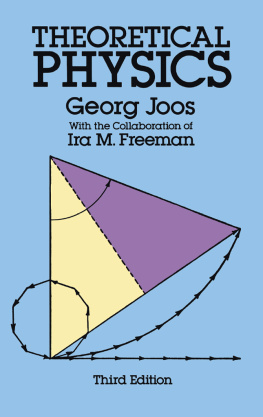Hughes - The theoretical practices of physics: philosophical essays
Here you can read online Hughes - The theoretical practices of physics: philosophical essays full text of the book (entire story) in english for free. Download pdf and epub, get meaning, cover and reviews about this ebook. City: Oxford, year: 2012;2010, publisher: Oxford University Press USA - OSO, genre: Romance novel. Description of the work, (preface) as well as reviews are available. Best literature library LitArk.com created for fans of good reading and offers a wide selection of genres:
Romance novel
Science fiction
Adventure
Detective
Science
History
Home and family
Prose
Art
Politics
Computer
Non-fiction
Religion
Business
Children
Humor
Choose a favorite category and find really read worthwhile books. Enjoy immersion in the world of imagination, feel the emotions of the characters or learn something new for yourself, make an fascinating discovery.

- Book:The theoretical practices of physics: philosophical essays
- Author:
- Publisher:Oxford University Press USA - OSO
- Genre:
- Year:2012;2010
- City:Oxford
- Rating:4 / 5
- Favourites:Add to favourites
- Your mark:
- 80
- 1
- 2
- 3
- 4
- 5
The theoretical practices of physics: philosophical essays: summary, description and annotation
We offer to read an annotation, description, summary or preface (depends on what the author of the book "The theoretical practices of physics: philosophical essays" wrote himself). If you haven't found the necessary information about the book — write in the comments, we will try to find it.
The theoretical practices of physics: philosophical essays — read online for free the complete book (whole text) full work
Below is the text of the book, divided by pages. System saving the place of the last page read, allows you to conveniently read the book "The theoretical practices of physics: philosophical essays" online for free, without having to search again every time where you left off. Put a bookmark, and you can go to the page where you finished reading at any time.
Font size:
Interval:
Bookmark:
THE THEORETICAL PRACTICES OF PHYSICS
Philosophical Essays
R. I. G. HUGHES


Great Clarendon Street, Oxford ox2 6dp
Oxford University Press is a department of the University of Oxford.
It furthers the Universitys objective of excellence in research, scholarship,
and education by publishing worldwide in
Oxford New York
Auckland Cape Town Dar es Salaam Hong Kong Karachi
Kuala Lumpur Madrid Melbourne Mexico City Nairobi
New Delhi Shanghai Taipei Toronto
With offices in
Argentina Austria Brazil Chile Czech Republic France Greece
Guatemala Hungary Italy Japan Poland Portugal Singapore
South Korea Switzerland Thailand Turkey Ukraine Vietnam
Oxford is a registered trade mark of Oxford University Press
in the UK and in certain other countries
Published in the United States
by Oxford University Press Inc., New York
R. I. G. Hughes 2010
The moral rights of the author have been asserted
Database right Oxford University Press (maker)
First published 2010
All rights reserved. No part of this publication may be reproduced,
stored in a retrieval system, or transmitted, in any form or by any means,
without the prior permission in writing of Oxford University Press, or as
expressly permitted by law, or under terms agreed with the appropriate
reprographics rights organization. Enquiries concerning reproduction
outside the scope of the above should be sent to the Rights Department,
Oxford University Press, at the address above
You must not circulate this book in any other binding or cover
and you must impose the same condition on any acquirer
British Library Cataloguing in Publication Data
Data available
Library of Congress Cataloging in Publication Data
Hughes, R.I.G.
The theoretical practices of physics : philosophical essays / R. I. G. Hughes.
p. cm.
Includes bibliographical references and index.
ISBN 9780199546107 (hardback : alk. paper) 1. PhysicsPhilosophy. I. Title.
QC6.2.H84 2009
530.01dc22 2009029698
Typeset by Laserwords Private Limited, Chennai, India
Printed in Great Britain
on acidfree paper by
the MPG Books Group
ISBN 9780199546107
1 3 5 7 9 10 8 6 4 2
For Barbara
Our mutual love of theatre brought us together one Spring night in the Autumn of our days, and together we have lived our own drama filled with joy, laughter, and love. Thank you, my Dear, for bringing a new, undreamedof dimension to my life, and for your unfailing love, encouragement, and support. In the words of the Bard:
That time of year thou mayst in me behold
When yellow leaves, or none, or few, do hang
Upon those boughs which shake against the cold,
Bare ruined choirs where late the sweet birds sang.
In me thou seest the twilight of such day
As after sunset fadeth in the west,
Which by and by black night doth take away,
Deaths second self, that seals up all the rest.
In me thou seest the glowing of such fire
That on the ashes of his youth doth lie
As the deathbed whereon it must expire,
Consumed with that which it was nourished by.
This thou perceivst, which makes thy love more strong,
To love that well which thou must leave ere long.
William Shakespeare, Sonnet 73
Over the last ten to twenty years, I have become increasingly interested in exploring the ways in which scientists, and physicists in particular, explain and communicate their theories to each other and to the world at largein other words, the methods they practise in the discourse of physics. As a philosopher of physics, my interest and research in this area led me to the conclusion that I wanted to write a series of essays dealing with various facets of this subject, both philosophical and scientific, and then to tie them together in a book. This book is the result of this quest, and covers a wide range of subjects, from the application of literary criticism to the discussions and analysis of writings in classical and quantum mechanics.
The book consists of eight essays, all within the Philosophy of Physics, and varying in length. They fall into three categories. In the first category are the essays which examine specific branches of physics: Essay 2 covers Bohm and Pines papers on the plasma theory of metals in the early 1950s; Essay 6, Kenneth Wilsons criticalpoint phenomena up to 2000; and Essay 8, the AharonovBohm effect. In the second category are the essays that concentrate on facets of physics that philosophers attend to: laws of physics in Essay 3; disunities in physics in Essay 4; models and representation in Essay 5; and theoretical explanations in Essay 7. In the third category is Essay 1, a hybrid essay built from criticism and the general theory of relativity.
Essay 1 introduces criticism, not as disapproval, but as the definition and judgement of literary or artistic work. The literature discussed is Newtons Principia (Essay 3); Newtons Opticks (Essay 7); Einsteins papers on The Brownian Motion (Essay 4); and Einsteins The Perihelion Motion of Mercury by the General Theory of Relativity (Essay 1). Essay 2 introduces theoretical practice. It provides a commentary on Bohm and Pines quartet, A Collective Description of Electron Interaction. In the quartet, Bohm and Pines employ (a) two theories: classical mechanics and quantum mechanics; (b) sundry models; (c) several modes of description; and (d) various approximative strategies. By treating these publications as texts, it casts the philosopher of science in the role of literary critic.
When tied together, the eight essays form the whole, a discussion of the theoretical practices of physics.
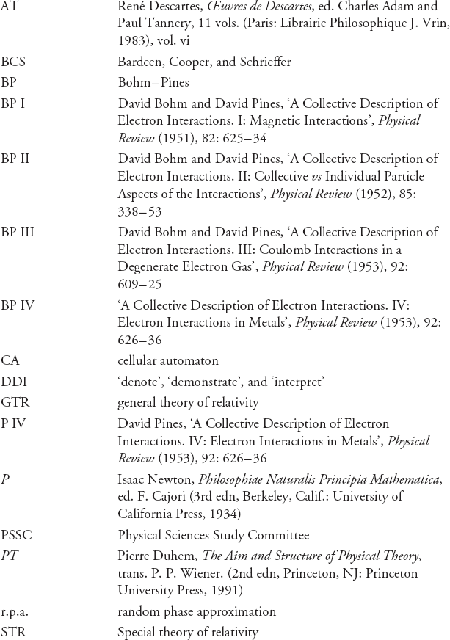
Criticism, Logical Empiricism, and the General Theory of Relativity
For the human being in his surrounding world there are many kinds of praxis, and among them is this peculiar and historically late one, theoretical praxis.
Edmund Husserl
Alfred Tarskis Introduction to Logic and to the Methodology of Deductive Sciences opens with this assertion: Every scientific theory is a system of sentences which are accepted as true and which may be called laws or asserted statements or, for short, simply statements (1965: 3).
The statement view of theories, as we may call it, was shared by the logical empiricists, and went almost unchallenged in the philosophy of science during the middle decades of this century. If, as Tarski does in the case of mathematics, we add the requirement that the statements of a theory are to be laid out as a formal deductive system, we get the following thesis:
The sciences are properly expounded in formal axiomatized systems. The sciences are to be axiomatized: that is to say, the body of truth that each defines is to be exhibited as a sequence of theorems inferred from a few basic postulates or axioms. And the axiomatization is to be formalized: that is to say, its sentences are to be formulated within a well-defined language, and its arguments are to proceed according to a precisely and explicitly set of logical rules. (Barnes 1975: xi)
Next pageFont size:
Interval:
Bookmark:
Similar books «The theoretical practices of physics: philosophical essays»
Look at similar books to The theoretical practices of physics: philosophical essays. We have selected literature similar in name and meaning in the hope of providing readers with more options to find new, interesting, not yet read works.
Discussion, reviews of the book The theoretical practices of physics: philosophical essays and just readers' own opinions. Leave your comments, write what you think about the work, its meaning or the main characters. Specify what exactly you liked and what you didn't like, and why you think so.




